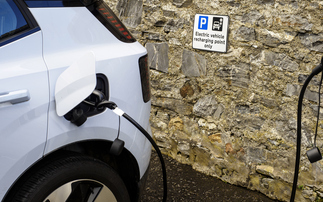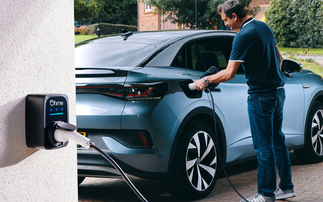
Industry Voice: Despite predictions of huge growth within the electric vehicle charging market, fierce competition could prevent some companies from making decent returns, explains Schroders
Sales of electric vehicles (EVs) have been remarkably strong recently. In the 12 months to June 2021, sales of EVs were more than 160 per cent higher than in the same period a year earlier, and were up by more than 130 per cent in the comparable period in 2019, according to BNEF data.
So, although the transition to EVs is truly underway, this is just the beginning and there is a lot further to go. In the UK, for example, EVs accounted for 11 per cent of total passenger vehicle sales last year. However, that share will have to rise to 100 per cent in fewer than nine years if the target to ban sales of new internal combustion engine (ICE) vehicles by 2030 is to be met.
On the commercial vehicle side, more and more companies are committing to ambitious decarbonisation targets, which means emissions from commercial vehicle fleets are coming under scrutiny. The 111 members of the ‘EV100' group, which includes companies such as Tesco and Ikea, have committed to switch their fleets to EVs and/or install charging for staff and/or customers by 2030.
In addition to these policy and target tailwinds, the economics of EVs continue to improve as the industry expands. Indeed, EVs are expected to become cheaper than ICE vehicles within the next few years. This will be an important tipping point for the market which will further accelerate the transition.
How big could the EV charging market be?
According to estimates by Bloomberg, more than 300 million new EV charging ports (across residential, public, fast charging and fleet) will be required globally by 2040, up from fewer than six million today. The enormous volume of chargers required to support the shift to EVs (both passenger and commercial), means this is expected to remain a growth market until around 2035, when investment in charging infrastructure peaks.
Under Bloomberg's more ambitious growth scenario, more than 500 million chargers would be required globally by 2040, representing almost $1.6tr of cumulative investment in EV charging infrastructure.
What are the opportunities and challenges?
Until recently, it has been difficult for equity investors to directly access the EV charging theme: either because the companies were private, or because small EV charging businesses were tucked away in larger, diversified companies.
However, a raft of EV charging companies have gone public in the past 12 months, often via special purpose acquisition vehicles (SPACs). Consequently, the opportunities for investors have expanded considerably.
While the proliferation of well-funded EV charging companies bodes well for the industry's ability to support the energy transition, it also raises a pressing question from an investment perspective. With so many companies jostling for a piece of the action, will competition prevent these companies from achieving decent returns?
What does this mean for investors?
Many of these companies may be able to continue to do well in the short term as the EV charging sector continues to expand rapidly. In the long term, however, the gap between those companies which have managed to create real customer retention (for example, through selling software subscriptions) and those whose business model is focused primarily on selling the charging hardware or electricity, may become more apparent.
Investors who remember the evolution of the solar manufacturing industry over the last 10 years will be all too familiar with the idea that a market can grow rapidly while delivering poor returns to shareholders. As investors in climate change, our role is to look beyond the eye-catching growth numbers and seek out those companies with durable long-term competitive advantages.
This article is sponsored by Schroders.
Read more sustainability insights from Schroders








